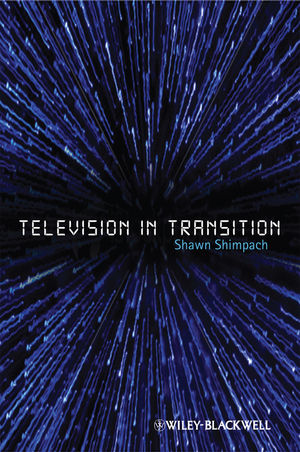|
Textbook
Television in Transition: The Life and Afterlife of the Narrative Action HeroISBN: 978-1-4051-8535-6
Paperback
256 pages
May 2010, ©2010, Wiley-Blackwell
 |
||||||
"Shimpach’s canny book shows how these uncertain times reveal a cultural and corporate desire––in on-screen heroics and industrial antics alike––to “save” television ... even as it transforms before our very eyes." John Hartley, author of “Television Truths”
"With trenchant insight and far-reaching interpretation, Shawn Shimpach confronts transformations in the media landscape that dramatically are changing the fundamental experience of TV today. Most impressively, he demonstrates richly productive ways to combine industry analysis with close reading of individual programs in order to account for continuities and breaks in what television now means in our everyday life. This is destined to be a major work in television studies." Dana Polan, Cinema Studies, New York University author of The Sopranos (Duke University Press) and Julia Child's The French Chef (forthcoming, Duke)
"Shimpach has written a smart and savvy book that connects the
new industrial configurations of American television to the texts
it produces. He examines aesthetics, narrative, and genre
while accounting for the ideological workings of gender and
incorporating an international perspective." Roberta Pearson,
University of Nottingham
"Shimpach eloquently describes the impact of new global business forces in the TV industry through an insightful examination of four different kinds of heroes. His analysis reveals new ways to think about what stories TV can tell about heroism in the 2000s." Sharon Ross, Columbia College Chicago



